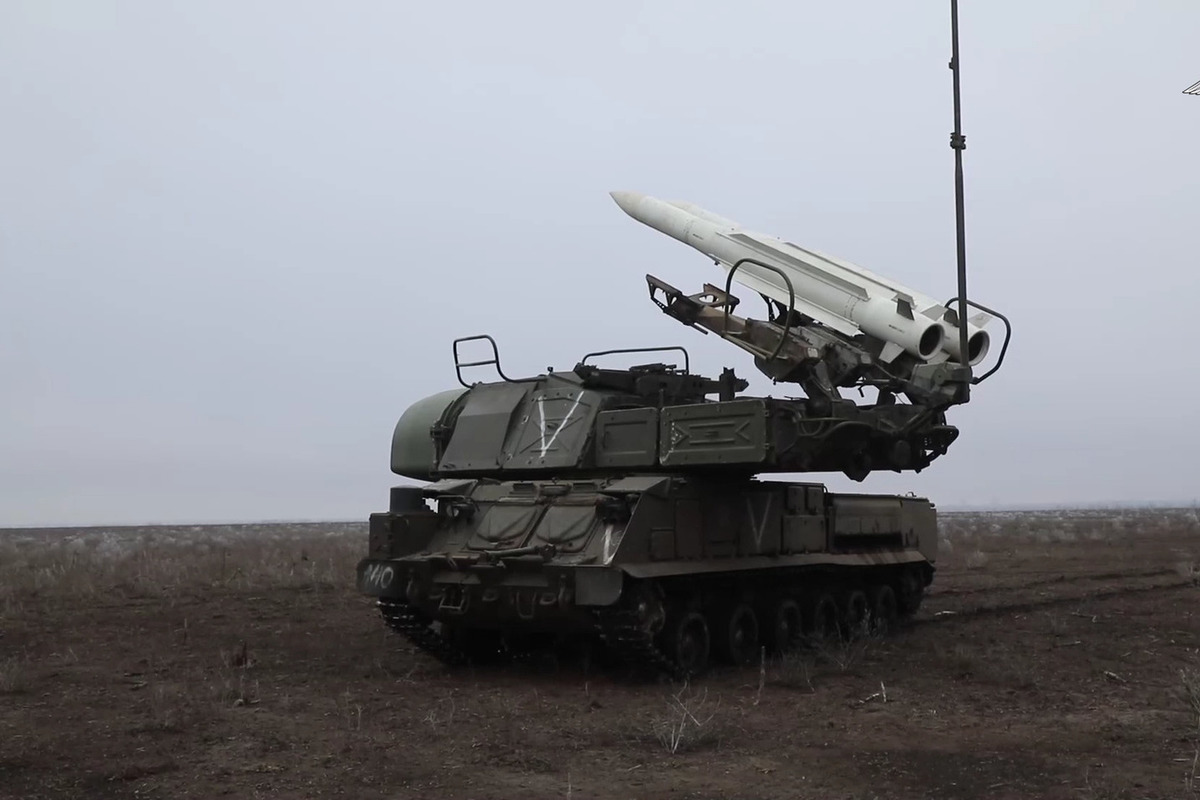Ruslan Pukhov: “After the victory in the Northern Military District, the demand for Russian weapons will increase exponentially”
[ad_1]

The special operation is in its third year, and, according to leading military analysts, it has given a tremendous impetus to the development of the domestic defense industry. The military-industrial complex (DIC), as everyone admits, has been rebuilt on a “military basis” to satisfy the needs of the army. What about the export segment? Does our defense industry have enough strength to work on two fronts – to supply products to both our Armed Forces and foreign customers? “MK” asked these questions to the leading analyst in the field of military-technical cooperation, director of the Center for Analysis of Strategies and Technologies (CAST) Ruslan Pukhov.
– For two decades in a row, Russia has firmly held second place in the world ranking of military exporters, second only to the United States. How is the situation now? Has the Northern Military District greatly influenced the scale of our military-technical cooperation with foreign countries?
– Undoubtedly. The combination of Western anti-Russian sanctions and the sharply increased needs of the Russian Armed Forces for weapons in the context of large-scale hostilities led to a certain reduction in Russian defense exports.
Actually, defense exports in any country during a major war are unnatural in principle (unless, of course, these are free supplies to the allies). It is clear that priority in the production and supply of weapons should be given to its armed forces. The slogan “Everything for the front, everything for Victory!” logical and understandable.
With all this, Russia retains certain international obligations and has an interest in continuing broad cooperation with friendly countries. In short, with regard to military-technical cooperation, it is necessary to maintain a balance, which is what is being done.
– Recently, the Stockholm Institute SIPRI published a report on global arms exports in 2023. According to his data, Russian military exports have decreased by almost half compared to the period before the Northern Military District…
– Well, first of all, I wouldn’t trust SIPRI’s numbers very much. They always used open, sometimes unreliable sources. What can we say about today, when, under the conditions of anti-Russian sanctions and military defense, information about military supplies is highly secretive.
In addition, SIPRI compilers do not take into account all kinds of supplies of spare parts, service work, repairs of military equipment previously exported, and much more. Let me remind you, for example, that Rosoboronexport announced supplies of military products in 2023 to 29 countries. So it is possible that the situation is actually better.
But even if we take the SIPRI report as a basis, I will say this: the reduction in arms sales by Russia in the second year of the SVO by only half can be considered, if not a miracle, then an outstanding success. It would be more logical to see a multiple fall, or even a complete stop.
– What are the prospects?
– It is known that our main exporter of military products – Rosoboronexport – now has significant pent-up demand for Russian weapons. Its order book stood at $55 billion at the end of 2023. That is, after the end of the war, exports can quickly recover, although much will depend on the level of continuation of the sanctions regime and on a number of foreign policy factors.
Russia is clearly making great efforts to even now maintain its position in the volume of weapons imported by its key clients from among friendly countries. Here I would name India, Algeria, Egypt… Russia continues to implement the main contracts with them. For example, S-400 anti-aircraft missile systems and Igla-S man-portable anti-aircraft missile systems are being supplied to India, Project 11356 frigates are being built for the Indian Navy, and BrahMos missiles are being jointly produced.
– Ruslan, the Northern Military District has greatly changed the nature of combat operations. How might this affect Russian military-technical cooperation?
– The experience of the Russian Armed Forces and the Russian military-industrial complex is truly unique. Take just one aspect – the so-called “drone war”, that is, a sharp increase in the role and place of unmanned systems of various classes and purposes during combat operations. Our industry has acquired fundamentally new competencies, and the army is mastering technologies for conducting “new type” combat operations.
I think this story will provide an opportunity in the future to promote these technologies and corresponding weapons on the global arms market, providing us with serious competitive advantages. I would not rule out that after the victory in the Northern Military District, the demand for Russian weapons and Russian military technologies in the world will increase exponentially.
– Can we thus say that Russia remains one of the key players in the global defense market?
– Quite. Let me emphasize once again: the current situation of maintaining significant Russian defense exports in the context of large-scale hostilities is, in fact, anomalous, unique and testifies to Russia’s very strong position in the world market. Russian defense exports are firmly on their own feet.
[ad_2]
Source link








